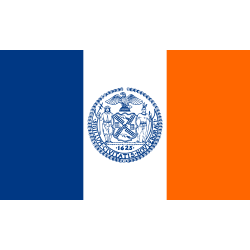
New York City offers numerous opportunities for skilled registered nurses (RNs), licensed practical nurses (LPNs), and certified nursing assistants (CNAs). Indeed, the New York City metro area is home to over 94,000 RNs, 20,000 LPNs, and 58,000 CNAs. But what does it take to get your foot in the door?
Registered nurses perform a wide variety of duties that include treating patients, performing diagnostic tests, analyzing results, establishing care plans, and operating medical equipment. Employers therefore require a hospital diploma, associate degree in nursing (ADN), or bachelor of science in nursing (BSN) plus successful passing of the NCLEX-RN national licensure exam. Many advanced nursing positions also required a master of science in nursing (MSN).
Licensed practical nurses care for the sick or injured under the supervision of RNs, surgeons, and physicians. They measure and record vital signs, dress wounds, prepare and give injections, collect samples for testing, and clean and monitor medical equipment. Aspiring LPNs must complete an accredited, state-approved certificate program of 12 to 18 months in length, followed by a passing score on the NCLEX-PN national licensure exam.
Certified nursing assistants provide hands-on care and help sick or injured patients to perform routine tasks. Aspiring CNAs must complete an accredited training program of several weeks in length and obtain state certification.
After completing an accredited nursing program, graduates are prepared to seek positions at top New York City hospitals and medical centers. Some of the city’s most prestigious care centers include Mount Sinai Medical Center, New York-Presbyterian Hospital, Bellevue Hospital, and Metropolitan Hospital. New York City nursing salaries are very competitive. RNs earn a median annual salary of almost $84,000 per year, while local LPNs and CNAs earn over $52,000 and $34,000 per year, respectively.
2024 NURSING SCHOOL RANKINGS
For our 2024 rankings, the research team at Nursing Schools Almanac collected data on nearly 3,000 nursing schools and campuses throughout the United States. We evaluated each school on three dimensions:
- The institution’s academic prestige and perceived value
- The breadth and depth of nursing programs offered
- Student success, particularly on the NCLEX licensure examination
We then combined these assessments into an overall score and ranked the schools accordingly. For a detailed description of our assessment methodology and dimension weights, please see here.
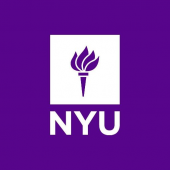
#1: New York University
U.S. News & World Report consistently ranks the adult-gerontology nurse practitioner programs at NYU Rory Meyers College of Nursing among the top ten nationally. The college is also sixth nationally in NIH nursing research funds awarded over the past decade, and NYU Meyers has twice earned a Center of Excellence designation from the National League for Nursing. In its flagship BSN program, the college graduates more than 400 students each year who have passed the NCLEX exam at an 87% first-try rate over the past decade. NYU Meyers also offers an MSN program with nine concentration options, post-master’s advanced certificates in eleven fields, a DNP degree with three entry paths, and a PhD in nursing research and theory development.

#2: Columbia University
As part of Columbia University Irving Medical Center, Columbia Nursing enjoys a unique collaboration with the Vagelos College of Physicians and Surgeons, the Mailman School of Public Health, and the College of Dental Medicine. In fact, Columbia is one of eight nursing schools in the nation associated with a major academic medical center. Since its establishment in 1892, Columbia Nursing has graduated approximately 12,000 nurses. The school has a history of innovation: it launched the first master’s degree in clinical nursing in 1956, and it recently introduced a fifteen-month direct-entry MSN program for non-nurse college graduates. Columbia Nursing is proud to boast 38% ethnic diversity.
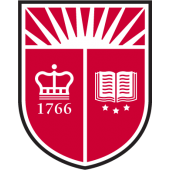
#3: Rutgers, The State University of New Jersey
The Rutgers School of Nursing is New Jersey’s largest institution of nursing education, with more than 1,600 students across campus sites in Newark, New Brunswick, and Blackwood. Undergraduates may select from three BSN pathways (traditional, accelerated second degree, RN-to-BSN) as well as a post-baccalaureate school nurse certificate. The school graduates more than 300 students annually from its prelicensure BSN programs, maintaining a superb 93% first-time NCLEX pass rate over the past three years. At the graduate level, Rutgers offers an MSN with informatics and leadership concentrations, seven post-master’s certificates, eleven areas of DNP specialization, and a PhD program with post-baccalaureate and post-master’s entry points.
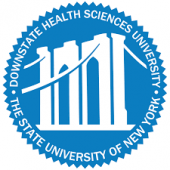
#4: SUNY Downstate Health Sciences University
SUNY Downstate College of Nursing enrolls more than 350 students across nearly a dozen program offerings. Baccalaureate students have two options: a second-degree accelerated BSN and an RN-to-BSN completion program. The accelerated BSN program graduates 50-75 students annually, with a strong 92% first-time NCLEX pass rate over the past decade. Graduate students can select from three MSN specializations (family nurse practitioner, nurse-midwifery, women’s health nurse practitioner) and three advanced certificates (family nurse practitioner, nursing education, women’s health primary care nurse practitioner). SUNY Downstate also recently launched a DNP program that offers both a post-master’s track and two post-baccalaureate tracks (family nurse practitioner, women’s health nurse practitioner).
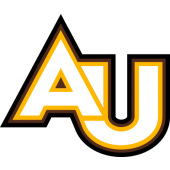
#5: Adelphi University
With more than seventy years of nursing education experience, the Adelphi College of Nursing and Public Health has twice been designated a Center of Excellence by the National League for Nursing. The college currently enrolls over 1,000 undergraduates and approximately 150 graduate nurses. Adelphi students benefit from small class sizes and strong collaboration with faculty. Approximately 250-350 BSN students sit for the NCLEX exam each year, and they have scored a 78% first-time pass rate over the past decade. The college also prides itself on the fact that approximately 90% of Adelphi master’s degree students gain employment within a year of graduation.

#6: Hunter College
Hunter-Bellevue School of Nursing (HBSON) offers three undergraduate programs: a traditional BSN, an accelerated second-degree program, and an RN-to-BSN bridge. It also provides six MSN specialization tracks, a post-master’s certificate in psychiatric-mental health, and a DNP program. The school graduates 90-130 BSN students annually, who have passed the NCLEX exam at a solid 88% rate over the past ten years. With an aim to provide care in culturally diverse communities, HBSON has supported nursing education initiatives in Haiti and introduced a Global Health Nursing elective at the undergraduate level.
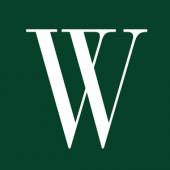
#7: Wagner College
In 2012, the Evelyn L. Spiro School of Nursing earned a coveted COE designation from the National League for Nursing. The school offers a traditional BSN, second-degree BSN, and RN-to-BSN completion program at the undergraduate level. It also offers MSN tracks for aspiring nurse educators and family nurse practitioners, a post-master’s FNP certificate, and a DNP program. Wagner produces more than 100 new BSN-educated nurses each year, and these graduates have passed the NCLEX exam at rates as high as 94% in recent years. Students learn at the Nursing Resource Center, which has a well-equipped high-fidelity simulation lab and a general skills lab.
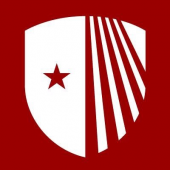
#8: Stony Brook University
At Stony Brook University’s School of Nursing, all graduate-level and online classes are recorded and archived, allowing students to access lecture materials at their convenience. Not surprisingly, Stony Brook’s online MSN program consistently ranks highly according to U.S. News & World Report. The school annually sits 100-160 BSN students for the NCLEX exam, and they have passed at a strong 92% rate over the past decade. Stony Brook also offers a wide breadth of graduate nursing programs, including nine MSN / advanced certificate tracks and a Doctor of Nursing Practice.
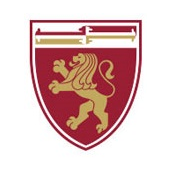
#9: Molloy College
Molloy College graduates a BSN class of approximately 300 students each spring, the second-largest such cohort in the entire state (after NYU). Molloy students perform well on their licensure exams, passing at a 92% first-time rate over the last four years. The college also offers a BSN degree completion program for RNs, as well as a unique dual-degree option that enables students to enroll in both undergraduate and graduate courses simultaneously. At the graduate level, Molloy offers seven distinct MSN tracks, nine post-master’s nursing certificates, and a highly regarded nursing PhD program.
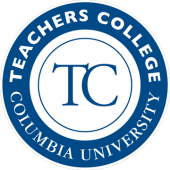
#10: Teachers College, Columbia University
Columbia University’s Teachers College has trained nurse education leaders since 1899. The college conducts programs for MSN-prepared and advanced practice nurses through its Department of Health & Behavior Studies. Teachers College’s doctor of education (EdD) in nursing education has a curriculum designed by nursing education experts and approved by the State of New York as an online offering. Doctoral students who would like clinical expertise in diabetes management may take advantage of the school’s diabetes education and management curriculum. The school also offers a five-course advanced certificate in nursing education specifically designed for doctorally prepared nurses.
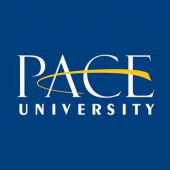
#11: Pace University
The Lienhard School of Nursing (LSN) at Pace University’s College of Health Professions offers its students learning opportunities by partnering with many well-known primary, acute, and tertiary care facilities and community agencies. LSN’s small class sizes ensure greater faculty attention, enabling BSN students to pass the NCLEX exam at a 90% rate over the past ten years. Across its two campuses in Pleasantville and New York City, LSN offers traditional and accelerated BSN programs for undergraduates as well as a variety of graduate degree and certificate programs.
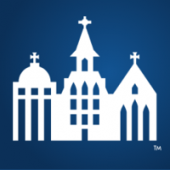
#12: Seton Hall University
Seton Hall University’s College of Nursing was established in 1937 as New Jersey’s first college of nursing. The university continues to lead in nursing scholarship, teaching, and practice. Indeed, Seton Hall has educated approximately one third of all New Jersey nurses and is one of the few universities in the nation approved for Army ROTC nursing candidates. In addition to New Jersey’s first BSN program, the college boasts one of just two nursing PhD programs in the state. Seton Hall typically graduates 80-120 students annually from its two BSN tracks (traditional undergraduate and second degree accelerated), with a stellar 94% first-time NCLEX pass rate over the past three years. The college also offers an RN-to-MSN bridge, four online MSN specializations, three nurse practitioner post-master’s certificates, and a post-master’s DNP with both direct care (advanced practice) and indirect care (administration and leadership) options.
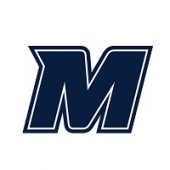
#13: Monmouth University
Monmouth University is home to the Marjorie K. Unterberg School of Nursing and Health Studies. The school’s Department of Nursing offers a number of degree options, including two BSN pathways (prelicensure, RN-to-BSN), two MSN pathways (traditional, RN-to-MSN), and a 36-credit online DNP. Monmouth also offers graduate certificates in forensic nursing and school nursing, along with post-master’s certificates in nursing education and several popular nurse practitioner fields (adult-gerontological, family, psychiatric-mental health). All nursing students are members of the Monmouth University Professional Nurses Association. Top BSN and MSN performers can also apply for membership in the Lambda Delta chapter of the Sigma Theta Tau nursing honor society.

#14: Hofstra University
Hofstra University houses more than a dozen colleges and schools that serve over 10,000 students across 300 degree programs. The Hofstra Northwell School of Nursing and Physician Assistant Studies offers a traditional prelicensure BSN program as well as a full suite of graduate programs for professional nurses seeking career advancement. The school provides top-tier clinical experiences through a large network of sites. Students conduct simulation laboratory activities at the Patient Safety Institute, interact with standardized patients at the Clinical Skills Center, and practice hands-on procedural skills at the Bioskills Education Center. The school offers three nurse practitioner specialties – adult-gerontology acute care, family, and psychiatric-mental health – across its MSN, advanced certificate, and DNP programs, as well as a unique Registered Nurse First Assistant Advanced Certificate. Hofstra Northwell nursing students have enjoyed perfect 100% graduation and employment rates.
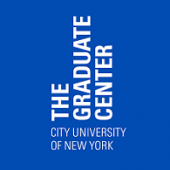
#15: The Graduate Center, CUNY
The Graduate Center at The City University of New York offers a PhD program for nurses that hold a master’s degree in nursing from an accredited school. The PhD program – formerly called a doctor of nursing science, or DNS – is composed of 49 post-master’s credits with no clinical component, as these courses would have been completed at the master’s level. Sample courses for the program include Applied Statistics, Bioethics, and Nursing Care Perspectives to Eliminate Health Disparities. In years one and two of the program, students will complete twenty hours of required courses each year. In the third year, students will complete nine hours of required coursework, and in the fourth year, students will complete and defend their dissertation.
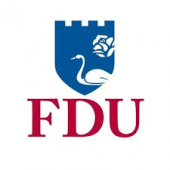
#16: Fairleigh Dickinson University
The Henry P. Becton School of Nursing & Allied Health at Fairleigh Dickinson University has educated nursing students since 1952. The school offers programs at both the Metropolitan and Florham campuses of FDU. The Metropolitan campus houses a full breadth of nursing programs including three BSN pathways, an MSN degree with five clinical tracks and three non-clinical tracks, five post-master’s certificates, and a DNP program with several entry points. The Florham campus focuses its nursing education on a traditional BSN degree and an MSN degree with two nurse practitioner specializations (adult gerontology, family psychiatric / mental health). Over the past five years, the university’s BSN graduates have achieved a 94% first-time pass rate on the NCLEX licensure exam, including a perfect 100% pass rate the past two years.
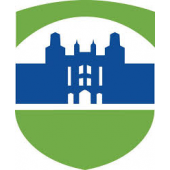
#17: Lehman College
The Department of Nursing at Lehman College is part of the School of Health Sciences, Human Services, and Nursing. The department offers three undergraduate nursing pathways including a generic BSN, an accelerated BSN, and an online RN-to-BSN program. Over the past decade, prelicensure BSN graduates have achieved a noteworthy 81% first-time pass rate on the NCLEX-RN exam. At the graduate level, Lehman College offers two MSN specializations (family nurse practitioner, pediatric nurse practitioner) and four post-master’s certificates (FNP, PNP, nursing education, nursing administration). In the fall of 2020, the college launched the Bronx’s first DNP program.
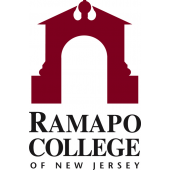
#18: Ramapo College of New Jersey
Ramapo College of New Jersey graduates a class of 70-90 prelicensure BSN students each spring. These students have excelled on their licensure exams in recent years. The school has achieved an NCLEX pass rate higher than 90% for seven consecutive years, including a stellar 99% pass rate for the class of 2019. Ramapo College also offers an RN-to-BSN program and an MSN focused on nursing education. The college maintains a clinical partnership with the Valley Hospital, which is designated a magnet hospital by the American Nurses Credentialing Center. In addition, Ramapo students have access to a well-equipped learning center with two designated computer labs, four patient stations, and a patient simulator.
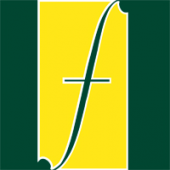
#19: Felician University
Founded as Immaculate Conception Normal School almost a century ago, Felician University is one of 24 Franciscan universities in the United States and the only one in New Jersey. The School of Nursing offers three BSN pathways (traditional, accelerated second degree, RN-to-BSN), three MSN specializations (adult-gerontology nurse practitioner, family nurse practitioner, nursing administration), an RN-to-MSN online fast track, and a post-master’s DNP program. Graduate certificates are also available in all three MSN specialties. Felician students learn and work in the Barbara J. Toscano Nursing Resource and Simulation Center, a state-of-the-art skills lab where they can apply their nursing skills in a realistic healthcare environment. Since 2013, Felician’s BSN graduates have achieved an excellent 89% first-time pass rate on the NCLEX national licensure exam.
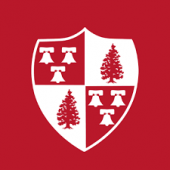
#20: Montclair State University
Montclair State University serves 21,000 students through seven distinct schools. The School of Nursing offers three programs: a new four-year prelicensure BSN, an RN-to-BSN degree completion pathway, and an online MSN degree. The MSN program has entry points for both BSN-prepared nurses and for nurses with a baccalaureate degree in another field. The MSN also offers concentrations in clinical research coordination, nursing administration, and nursing education. Montclair State provides its nursing students a state-of-the-art learning facility that includes mediated classrooms, computer study areas, a nursing skills laboratory, an anatomy laboratory, and high-fidelity simulation rooms.
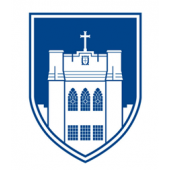
#21: Mount Saint Mary College
Mount Saint Mary College offers five pathways in nursing including a traditional BSN, an adult degree completion program, an LPN-to-BSN bridge, an RN-to-BSN bridge offered in a hybrid on-site / online model, and an MSN degree. The traditional BSN is a four-year program for students with no prior nursing education, while the adult degree completion program is an evening and weekend program designed especially for adult learners. The bridge programs are designed for existing LPNs and RNs who wish to advance their nursing education in a streamlined manner. Across prelicensure pathways, BSN students have averaged an 86% first-time pass rate on the NCLEX exam during the past decade. Mount Saint Mary’s MSN degree prepares nurses to enter the healthcare arena as nurse practitioners.

#22: William Paterson University
William Paterson University is the second-oldest of the nine state colleges and universities in New Jersey. It is also the third-most diverse of these institutions. The Department of Nursing offers baccalaureate, master’s, and doctoral degrees as well as graduate certificates. Undergraduate students can pursue a traditional BSN track, an accelerated second-degree program, or an RN-to-BSN completion pathway. Prelicensure students have averaged a stellar 96% NCLEX pass rate over the past four years. Graduate students can pursue several MSN specializations including adult-gerontology nurse practitioner, family nurse practitioner, nursing administration, and nursing education. All four focal areas are offered through both traditional (post-baccalaureate) and RN-to-MSN pathways. Post-master’s certificates are also available in the AGNP and FNP focal areas. Finally, the university offers a post-master’s, 41-credit-hour DNP program that can be completed in just seven semesters of fulltime study.
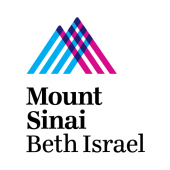
#23: Phillips School of Nursing
An integral part of Mount Sinai Health System, the Phillips School of Nursing is one of just 62 schools nationwide deemed a Center of Excellence by the National League for Nursing. PSON offers two distinct BSN pathways: an accelerated program for baccalaureate degree-holders from a non-nursing discipline, and an RN-to-BSN completion program for nurses with an associate degree or diploma. Each program is designed for completion in just 15 months of fulltime study. PSON graduates have passed the NCLEX-RN licensure exam at an 84% first-try rate since the program’s launch, frequently exceeding both the state and national averages. The school recently relocated to a new facility in Manhattan’s East Harlem neighborhood, featuring more than 35,000 square feet of classroom, laboratory, and simulation space.

#24: College of Staten Island
The College of Staten Island, part of the vast City University of New York, offers a breadth of nursing programs across all degree levels. Undergraduate options include ADN and RN-to-BSN programs. The undergraduate curriculum combines science, humanities, and nursing coursework with supervised clinical experiences and the opportunity to practice nursing skills in state-of-the-art laboratories, including a high-fidelity simulation center. Over the past decade, ADN graduates have achieved a solid 83% first-time pass rate on the NCLEX-RN licensure exam. At the graduate level, CSI offers an MSN degree with two adult-gerontological specializations (clinical nurse specialist, primary care nurse practitioner) and two doctoral programs (DNP, PhD in nursing).
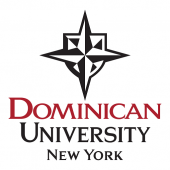
#25: Dominican University New York
Dominican University New York offers a breadth of undergraduate nursing pathways including a traditional four-year BSN, two accelerated prelicensure programs, and several RN-to-BSN options. The traditional daytime BSN is designed for LPNs and students with no nursing experience. It follows a conventional semester format, meeting five days per week. The weekday accelerated BSN program can be completed in just 12 months, and the weekend accelerated BSN in just 24 months, by utilizing a back-to-back trimester format. The university’s traditional and accelerated BSN students have passed the NCLEX licensure exam at a 72% first-try rate over the past decade. Nursing classes for the unique accelerated RN-to-BSN program are sequenced on Wednesdays only within an 18-month period. Select courses for the program are offered in a hybrid or online format. Dominican University New York also offers two graduate nursing programs: an MSN degree for aspiring family nurse practitioners and a post-master’s DNP degree. Each program is designed for working professionals to complete with two years of part-time study, utilizing a hybrid mix of weekday evening classes and online study.
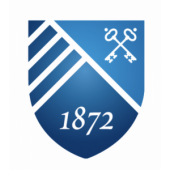
#26: Saint Peter’s University
Saint Peter’s University is one of twenty-eight Jesuit colleges and universities in the United States, and the only such institution in New Jersey. Founded as a liberal arts college for men in 1872, the school now serves a coed population of 3,500 students across more than fifty programs. The School of Nursing offers several routes to a BSN degree including a traditional four-year program, an accelerated second bachelor’s degree, and an RN-to-BSN pathway offered both on-campus and online. Approximately a dozen prelicensure BSN students graduate each spring. These students have scored an 89% NCLEX pass rate over the past six years, including a perfect 100% pass rate in 2018. At the graduate level, the school offers an MSN degree for aspiring adult-gerontology nurse practitioners, a post-master’s certificate in the same field, and a part-time face-to-face DNP program that can be completed in 5.5 years.
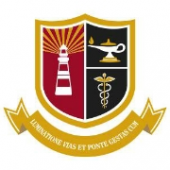
#27: Jersey College
The nursing school at Jersey College offers a licensed practical nursing certificate and a professional nursing associate degree. The ADN program has a traditional entry point for students new to nursing, as well as an advanced placement entry point for LPNs. Jersey College’s nursing curriculum includes classroom theory, challenging assignments, skill labs, and local clinical experiences. Across programs and campuses, students have enjoyed strong pass rates on the national licensure examination. For example, Teterboro students have scored an 87% NCLEX-PN pass rate since 2013 and an 85% NCLEX-RN pass rate since 2014. Ewing students have performed even more strongly, with a 92% NCLEX-PN pass rate since 2016 and an 88% NCLEX-RN pass rate since 2014.
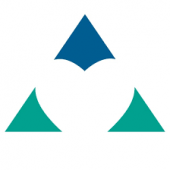
#28: Trinitas School of Nursing
In partnership with Union County College, Trinitas School of Nursing conducts a cooperative nursing program that awards graduates both a TSON nursing diploma and a UCC associate degree. TSON has been named an NLN Center of Excellence four consecutive times, and the school’s curriculum places special emphasis on addressing twenty-first-century healthcare challenges. Approximately 130-160 students complete the diploma program each year, and these graduates have posted a first-time NCLEX pass rate of 85% over the past eight years. TSON graduates can pursue a bachelor’s degree from Saint Elizabeth University through its RN-to-BSN program at the UCC campus. In fact, SEU also conducts a master of science in nursing program at the UCC site, enhancing the local mobility options for TSON graduates.
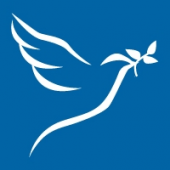
#29: Holy Name Medical Center Sister Claire Tynan School of Nursing
Founded by the Sisters of St. Joseph of Peace in 1925, the Holy Name Medical Center Sister Claire Tynan School of Nursing has grown from an inaugural class of 13 to one of the state’s largest coed Catholic diploma schools. The school offers both a two-year diploma in registered nursing and a 12-month diploma in practical nursing. Graduates from both programs perform admirably on their licensure exams, with a 93% NCLEX-RN pass rate and an 87% NCLEX-PN pass rate since 2013. Students in the RN diploma program may also earn an associate of applied science (AAS) degree from nearby Saint Peter’s University by completing just three additional college courses there.
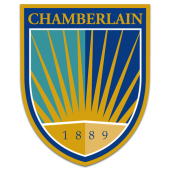
#30: Chamberlain University
In 2015, Chamberlain University announced its newest campus in North Brunswick. Nursing students at this location may earn a bachelor’s degree in just three years of fulltime study, saving them time and tuition money versus the traditional four-year pathway. The university’s 122-credit-hour BSN program combines conceptual learning with hands-on experience in the Chamberlain SIMCARE Center. Students also work alongside faculty, mentors, peers, and experienced nurses in a variety of clinical settings. Since the program’s inception, graduates from the North Brunswick campus have scored an 84% first-time pass rate on the NCLEX-RN national licensure examination.
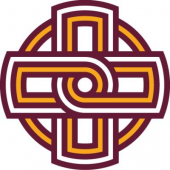
#31: Iona College
Iona College entered nursing education with its 2021 acquisition of the 28-acre Bronxville campus formerly operated by Concordia College New York. As part of the transition, Iona College is building upon Concordia’s existing BSN program to launch the New York-Presbyterian School of Health Sciences. The BSN program offers traditional four-year and accelerated second degree tracks, with clinical rotations and fulltime employment opportunities after graduation at New York-Presbyterian Hospital. This major academic healthcare system is affiliated with two Ivy League medical schools: Weill Cornell Medicine and Columbia University’s Vagelos College of Physicians and Surgeons. BSN graduates are extremely well prepared for the NCLEX-RN licensure examination. Over the past decade, students from Iona College and its Concordia College New York predecessor have averaged an impressive 94% first-time NCLEX pass rate.
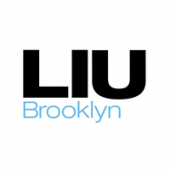
#32: LIU Brooklyn
The Harriet Rothkopf Heilbrunn School of Nursing at LIU Brooklyn offers both undergraduate and graduate nursing programs. The BSN program has three tracks: full-time day, part-time evening / weekend, and accelerated second degree. The accelerated track is a 16-month program for students who already hold a bachelor’s degree in another field, with admission in the spring, summer, and fall. LIU Brooklyn graduates 200-300 students annually across all BSN tracks. These students have passed the NCLEX licensure exam at a 77% first-time rate over the past decade, and they typically enter the field within three to six months of program completion. Graduate programs include a BSN/MSN executive program for nursing & healthcare management, and an MSN degree with three concentrations (family nurse practitioner, adult nurse practitioner, nurse educator).
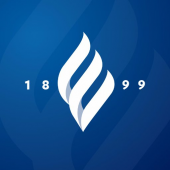
#33: Saint Elizabeth University
Saint Elizabeth University has a proud 120-year history of educating nurses. The school offers several degree options including two BSN pathways (prelicensure, RN-to-BSN) and two MSN pathways (traditional, RN-to-MSN). The prelicensure BSN program just launched in the fall of 2019. RN-to-BSN students have a strong track record of success, including at least an 88% fulltime nursing employment rate for three consecutive years. The MSN curriculum provides both nursing education and nursing leadership tracks. The RN-to-MSN pathway is specifically designed for nurses with a bachelor’s degree in a non-nursing field. Saint Elizabeth University offers classes both on the home campus in Morristown and at a number of regional health centers in order to fit a professional work schedule.
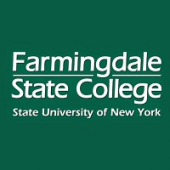
#34: Farmingdale State College
Farmingdale State College provides three pathways to a BSN degree: generic, transfer, and RN-to-BSN. The generic BSN is a traditional four-year program that consists of 126 credits. The transfer BSN is an advanced standing program that takes only three years to complete. The RN-to-BSN pathway requires just 62 additional college credits beyond the ADN degree. Over the past decade, graduates have scored a 94% first-time pass rate on the NCLEX licensure examination, including a perfect 100% pass rate in 2020.
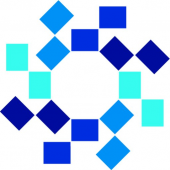
#35: JFK Muhlenberg Snyder School of Nursing
Through a cooperative program with nearby Union County College, JFK Muhlenberg Snyder School of Nursing offers four different tracks toward registered nursing licensure. The generic program awards both a nursing diploma and an AS degree in just five semesters of study. Accelerated options are available for existing LPNs (LPN-to-RN transition track) and bachelor’s degree-holders in non-nursing fields (accelerated track). Finally, individuals seeking a direct path to a BSN degree may complete a collaborative program between Snyder, UCC, and Kean University. Across all tracks, Snyder School of Nursing graduates have scored an 87% first-time pass rate on the NCLEX licensure examination over the past eight years.
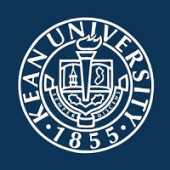
#36: Kean University
The Kean University School of Nursing offers educational preparation for nurses at the baccalaureate and graduate levels. Pathways include an online RN-to-BSN, a transculturally focused MSN with three areas of specialization, an RN-to-MSN for registered nurses with non-nursing baccalaureate degrees, and a DNP in educational leadership. The online RN-to-BSN program consists of 125 credits that may be completed in just three to four years part-time. Job placement rates for Kean’s nursing graduates are stellar, including a 97% job placement rate for RN-to-BSN graduates and a 100% job placement rate for MSN graduates over the past three years.
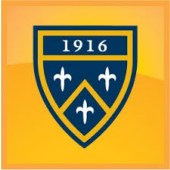
#37: St. Joseph’s College
St. Joseph’s College conducts its nursing programs across two convenient campus locations in the Clinton Hill area of Brooklyn and the Patchogue region of Long Island. At the undergraduate level, St. Joseph’s offers a traditional four-year BSN program for students entering the nursing field, as well as a blended RN-to-BSN program for RNs seeking career advancement. The baccalaureate curriculum features innovative courses like Adults in Transition, Group Dynamics & Communication, Relationship-Centered Care, and Way of Being. The college also offers an MSN program with three concentrations: adult-gerontology clinical nurse specialist, adult-gerontology primary care nurse practitioner, and nursing education. Graduate students may also earn an online certificate in management of health information systems.
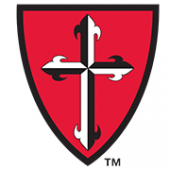
#38: Caldwell University
Established in 1939 as an institution of higher learning for women, Caldwell was the first college in New Jersey to award the bachelor of fine arts (BFA) degree. Today, the university conducts more than one hundred programs across twenty academic departments and schools. The School of Nursing and Public Health offers a BSN program that incorporates a strong liberal arts foundation, nursing coursework, and clinical experiences in a variety of healthcare agencies and community centers throughout the region. Simulation activities are integrated throughout the program to further develop students’ clinical skills. Over the past three years, BSN graduates have averaged a 90% pass rate on the NCLEX-RN licensure examination, including a stellar 96% pass rate in 2018. Caldwell University also offers an RN-to-BSN pathway and a new MSN degree in population health, both conducted fully online.
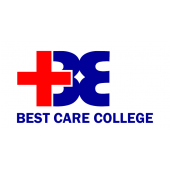
#39: Best Care College
Best Care College offers two options for aspiring nurses: a practical nursing certificate and an associate of science LPN-to-RN bridge program. The practical nursing certificate is a 50-week program that includes 1,488 hours of coursework, laboratory exercises, and clinical rotations. Day and evening classes are available. The program graduates approximately 30 students each year, with an impressive 89% first-time NCLEX-PN pass rate over the past eight years. The LPN-to-RN bridge program covers 18 courses over five trimesters. Thirty general education credits are required, and 36 additional credits are devoted to nursing. The inaugural LPN-to-RN graduating class achieved an excellent 91.7% first-time NCLEX-RN pass rate.
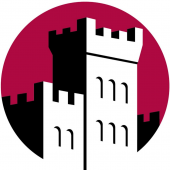
#40: Manhattanville College
Manhattanville College is a small, private, liberal arts institution that provides 45 undergraduate majors and minors, as well as 75 graduate degrees and advanced certificates. The School of Nursing and Health Sciences offers two BSN pathways – traditional four-year and accelerated second degree – as well as an MSN degree with a family nurse practitioner focus. The BSN curriculum features several unique enhancements, including end-of-life care certification and the opportunity to earn digital badges through specialized electives. The program also incorporates clinical rotations at top local healthcare facilities. The MSN curriculum trains licensed RNs to deliver primary care to families in a variety of healthcare settings.
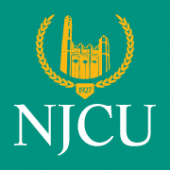
#41: New Jersey City University
New Jersey City University houses four distinct colleges and schools that collectively serve 8,500 students. The Nursing Department is part of the university’s College of Professional Studies. Nursing students can pursue an accelerated BSN as a second bachelor’s degree, an RN-to-BSN completion pathway, a master of science with a specialization in nursing education, or a post-master’s certificate in nursing education. NJCU students benefit from the university’s partnerships with numerous sites that offer a breadth of clinical experiences. Graduates are prepared for careers in a diverse range of healthcare settings including hospitals, case management, home health, and long-term care. Over the past eight years, the university’s accelerated BSN graduates have averaged an 84% first-time pass rate on the NCLEX licensure examination.
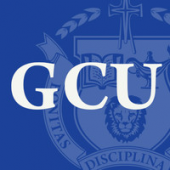
#42: Georgian Court University
Georgian Court University was founded in 1908 by the Sisters of Mercy. The university’s campus is both a National Arboretum Site and a National Historic Site. The Georgian Court-Hackensack Meridian Health School of Nursing offers a selective four-year BSN program that admits just forty students per semester. Students in the program benefit from the unique and innovative partnership between the university and Hackensack Meridian Health, which provides access to Magnet-certified clinical sites, masters- or doctorally-prepared faculty, and learning labs with state-of-the-art technology. Over the past eight years, BSN graduates have averaged an 81% first-time pass rate on the NCLEX licensure exam.
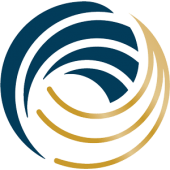
#43: Pacific College of Health and Science
Pacific College of Health and Science offers several online programs designed for working nurses. The RN-to-BSN program requires a minimum of 31.5 credits to complete. Online coursework is complemented by a three-day onsite retreat and the option to complete clinical requirements in the student’s hometown. Sample courses include Nursing Issues and Trends, Psychoneuroimmunology, and Nurse as Facilitator of Healing. Pacific College also offers an online certificate in holistic nursing. This post-baccalaureate program provides a broader view on healing through disease prevention and maintenance, self-care techniques, integrative holistic modalities, and quality-of-life improvements. Finally, Pacific College launched an online MSN degree in the fall of 2021. The curriculum provides students an even deeper grounding in the principles and practice of holistic nursing.
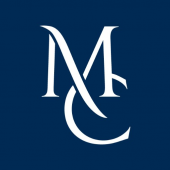
#44: Mercy College
The School of Health & Natural Sciences at Mercy College has three nursing programs: a traditional four-year BSN, an RN-to-BSN pathway offered online or on-campus, and a 15-month MSN program with tracks in nursing administration and nursing education. Nursing administration MSN students must complete a 120-hour practicum which places them with a preceptor or mentor in an administrative area. Nursing education MSN students are prepared to use innovative technology in the planning, implementation, and delivery of educational programs. Clinical nursing experiences for all programs are conducted in a state-of-the-art simulation laboratory as well as traditional, hands-on, instructor-supervised training in Westchester County and New York City healthcare facilities.

#45: York College
The Department of Nursing at York College offers a generic BSN program and an RN-to-BSN program. The generic BSN provides all general education and professional coursework in preparation for the NCLEX-RN licensure exam. York College’s generic BSN students have achieved an 88% first-time NCLEX pass rate since the program’s inception, including a perfect 100% pass rate in 2017 and 2019. The RN-to-BSN completion program is exclusively designed for ADN- or diploma-educated RNs who wish to complete a baccalaureate degree. Both BSN pathways prepare a generalist nurse to deliver professional nursing care in a variety of settings, with a focus on primary interventions like disease prevention and health maintenance. Students are also prepared for graduate-level nursing study.
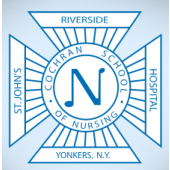
#46: Cochran School of Nursing
Founded in 1894 at St. John’s Riverside Hospital, Cochran School of Nursing is the oldest nursing school in Westchester County and the oldest hospital-based nursing school in the metropolitan region. CSN offers a prelicensure AAS degree program in professional nursing. Prerequisite courses, corequisite courses, and tutorial services are provided through Mercy College in nearby Dobbs Ferry. CSN also has an RN-to-BSN articulation agreement with Mercy College as well as Excelsior University, Chamberlain University, and SUNY Delhi. The school offers very flexible scheduling, with both day and night classes and both spring and fall admissions. It also boasts three human patient simulators on campus and clinical affiliations with the best hospitals in Westchester County. CSN students have passed the NCLEX licensure exam at a 91% rate over the past five years, well exceeding the state and national averages.
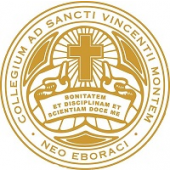
#47: College of Mount Saint Vincent
The College of Mount Saint Vincent’s School of Nursing has traditional BSN, accelerated second degree BSN, and dual BSN/MSN programs. Nursing students complete their clinical placements, externships, and preceptorships at some of New York’s top hospitals. Recent practicum placement sites include Memorial Sloan Kettering Cancer Center, New York-Presbyterian University Hospitals of Columbia and Cornell, and NYU Langone Medical Center. Students also enjoy small class sizes and personalized attention by an assigned advisor. The College of Mount Saint Vincent graduates approximately 150 prelicensure BSN students annually. The class of 2018 scored an 82% first-time pass rate on the NCLEX licensure examination.
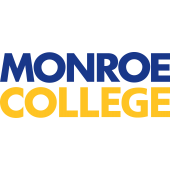
#48: Monroe College
Monroe College offers its three nursing programs in a ladder progression that provides students the flexibility of multiple entry and exit points. The three-semester LPN certificate program progresses from simple to complex concepts within a supportive liberal arts and sciences structure. The three-semester AAS degree is designed specifically for LPNs, with a curriculum that builds on what these students learned during their first year of study. The 15-month RN-to-BSN program prepares nurses for leadership roles by integrating concepts from health administration, public health, and a variety of electives. Monroe College students have performed well on their recent licensure exams, with an 87% NCLEX-RN pass rate and an unbelievable 97% NCLEX-PN pass rate over the past five years.
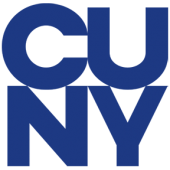
#49: CUNY School of Professional Studies
CUNY School of Professional Studies has several degree pathways for registered nurses at both the undergraduate and graduate levels. Undergraduate options include a traditional RN-to-BSN program, a dual/joint offering with Queensborough Community College, and an accelerated RN-to-BSN/MSN program with tracks in nursing education, informatics, and organizational leadership. All pathways are offered online. At the graduate level, CUNY SPS offers BSN-educated nurses a traditional MSN program with specializations in all three areas noted above. Graduates are prepared for immediate work in management and leadership positions or for admission to a doctoral program.
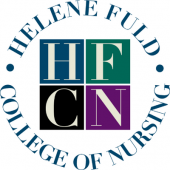
#50: Helene Fuld College of Nursing
Helene Fuld College of Nursing offers three programs for aspiring nurses: a generic BSN, an LPN-to-RN bridge, and an RN-to-BSN completion pathway. The generic BSN, which takes 28 months to complete fulltime, welcomes high school graduates, LPNs, and individuals who hold a degree in a non-nursing field. The LPN-to-RN bridge is a one-year full-time program for LPNs who wish to earn an ADN degree on an accelerated schedule. The RN-to-BSN pathway is designed for licensed registered nurses seeking a bachelor’s degree. This unique program, which focuses on environmental urban health nursing, can be completed in just 19 months fulltime. Four of the past five graduating classes have scored above an 80% first-time pass rate on the NCLEX-RN licensure examination.
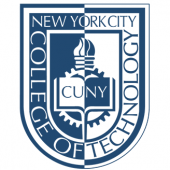
#51: New York City College of Technology
The nursing program at New York City College of Technology offers both ADN and BSN programs. Gerontological nursing and community-based nursing are integrated throughout the ADN curriculum; so too is technology through clinical laboratory simulation and BlackBoard enhancement of all nursing courses. Over the past decade, the college’s approximately 100 annual ADN graduates have achieved an impressive 90% first-time pass rate on the NCLEX-RN licensure exam. Designed for ADN- and diploma-prepared nurses, the BSN is a flexible upper-level program with didactic and clinical courses to meet the educational needs of current RNs. In addition to academic coursework in the classroom, students practice physical assessment skills in a college laboratory setting.

#52: Hunter Business School
Hunter Business School has provided career training programs to adult students for fifty years. The school expanded in 1999 to include healthcare programs such as medical assisting, practical nursing, diagnostic medical sonography, and radiologic technology. The three-semester LPN certificate program requires 1,322 hours of study. Two schedules are available: a daytime option which takes 11 months to complete, and an evening/weekend option which takes 14 months to complete. The program includes 537 hours of clinical experience at local hospitals, clinics, and long-term care facilities. Upon completion of the program, graduates are prepared to sit for the NCLEX-PN licensure examination. Hunter Business School’s LPN program typically graduates about fifty students per year. These students have averaged an 86% first-time NCLEX pass rate since the program’s inception.

#53: Montefiore School of Nursing
Montefiore School of Nursing was established in 1901 as part of Mount Vernon Hospital. The school offers a two-year associate of science degree program in preparation for initial licensure as a registered nurse. Students can select from a day option that admits a new cohort each August and an evening / Saturday option that admits a new cohort each January. Across both options, the school graduates approximately 40-60 students annually. Over the past decade, these graduates have averaged an 83% first-time pass rate on the NCLEX licensure exam, including a 92% pass rate for the class of 2018. At least three consecutive graduating classes have also enjoyed a 100% job placement rate within nine months of licensure. Montefiore School of Nursing maintains articulation agreements with eight colleges that enable its graduates to transition seamlessly into a BSN degree program.
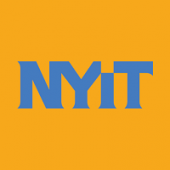
#54: New York Institute of Technology
NYIT’s School of Health Professions boasts an 83% or higher first-time NCLEX pass rate four out of the past seven years, including a stellar 97.7% pass rate during 2016. The school’s BSN program features nearly two dozen partnerships and clinical affiliations, as well as access to high-tech labs and clinical settings. Sample courses for the program include Community Health Nursing, Managerial Concepts and Skills, Nursing Therapeutics, and Transcultural Nursing. The transcultural nursing curriculum provides a holistic approach to team-based patient-centered care, enabling students to treat patients from a wide spectrum of clinical populations and practice settings.

#55: Southern Westchester BOCES
The Southern Westchester Board of Cooperative Educational Services (BOCES) was established in 1948 by the New York State Commissioner of Education and the Board of Regents. Among the school’s approximately twenty adult education offerings is an LPN program with two options: the ten-month day program and the twenty-month evening program. Coursework covers a range of practical nursing topics including medical/surgical care, obstetrics, and the administration of medication. Students also receive hands-on clinical experience in local hospitals, schools, and nursing facilities. The Southern Westchester BOCES graduates 60-90 students annually across the two LPN programs. Over the past decade, these graduates have averaged a solid 85% first-time pass rate on the NCLEX-PN licensure examination.
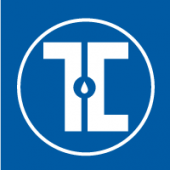
#56: Touro College
The Touro College and University System serves more than 18,000 students across its undergraduate, graduate, and professional schools. The School of Health Sciences offers two CCNE-accredited baccalaureate nursing programs. Traditional college students can pursue a four-year prelicensure BSN at the school’s Brooklyn campus, with nursing coursework commencing during the second year of study. Existing RNs can enroll in the school’s RN-to-BSN completion program, which students typically complete in just one to two years. Touro College offers the RN-to-BSN curriculum at both its Brooklyn campus and the New York Medical College campus in Valhalla. The Brooklyn site features diverse teaching-learning settings including the nursing skills laboratories, which provide a state-of-the-art environment for students to practice clinical skills. The Valhalla site is a convenient option for Westchester Community College’s nursing graduates and other nurses in the community.
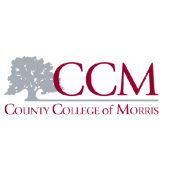
#57: County College of Morris
County College of Morris offers more than 45 associate degrees along with a full slate of certificate and workforce development programs. The Department of Nursing conducts an ADN program that incorporates a mix of general education and nursing coursework. Graduates are prepared for a diverse range of practice settings including medical-surgical nursing, critical care, emergency care, obstetrics, pediatrics, and psychiatric-mental health. Credits from the program are also readily transferable toward a four-year BSN at many state and private colleges. The ADN program typically graduates 100-120 new nurses annually. Since 2013, these students have achieved a solid 90% first-time pass rate on the NCLEX-RN licensure exam.
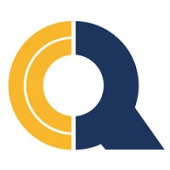
#58: Queensborough Community College
The Nursing Department at Queensborough Community College has an ADN program that starts in both the fall and spring semesters, with an evening option available in the fall. Over the past decade, approximately 80-90 ADN graduates per year have averaged a 91% first-time pass rate on the NCLEX licensure examination. Dual or joint degree programs are also available with Hunter-Bellevue School of Nursing, CUNY School of Professional Studies, and York College. These programs enable Queensborough students to transition seamlessly for their bachelor’s degree with convenient online options. Students may apply for these programs while enrolled in their first clinical nursing course.
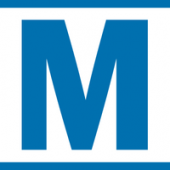
#59: Middlesex County College
Middlesex County College serves more than 11,000 students across ninety degree and certificate programs. Among these many offerings is an associate degree program in professional nursing with both day and evening/weekend options. The program offers a traditional entry point as well as an LPN-to-RN bridge option, which allows qualified LPNs to apply for advanced placement on a space-available basis. Middlesex County College’s ADN program typically graduates 60-80 students annually. Since 2013, these graduates have achieved an excellent 88% pass rate on the NCLEX licensure exam.
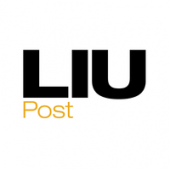
#60: LIU Post
Serving more than 6,000 students, LIU Post is the largest campus of the private Long Island University system. The School of Health Professions and Nursing offers a traditional four-year prelicensure BSN program, an RN-to-BSN degree completion pathway, and an MSN degree for aspiring family nurse practitioners. LIU Post’s nursing curriculum is experiential, with clinical rotations offered at over forty affiliated sites. Students have the opportunity to engage regularly with practicing nurses, experienced nurse practitioners, and doctorally prepared nursing faculty.
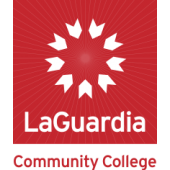
#61: LaGuardia Community College
Founded in 1971, LaGuardia Community College is named after New York City’s New Deal mayor who inspired a generation of immigrants. Located in Queens, the city’s most ethnically diverse borough, students develop a keen awareness of the different cultures they will serve. The college offers a certificate in practical nursing and an AAS degree in registered nursing, with an LPN-to-RN advanced placement option for existing practical nurses. Nursing courses are complemented by campus laboratory experience and clinical practice in local healthcare facilities. LaGuardia nursing students score very well on the NCLEX licensure examinations, including a 93% pass rate for aspiring LPNs and a 97% pass rate for aspiring RNs since 2016. Graduates can take advantage of the college’s comprehensive transfer agreements with more than seventy four-year colleges.

#62: Monmouth County Vocational School District
Monmouth County Vocational School District provides career and technical training at 15 sites across New Jersey. Since 1958, MCVSD has produced more than 4,000 graduates who have established careers in industries like advanced manufacturing, culinary arts, and STEM. The programs at MCVSD award a certificate upon completion, including the LPN pathway. Approved by the New Jersey Board of Nursing, the program covers the practical nursing curriculum in three phases. Specific topics include community health, medical-surgical nursing, pharmacology, obstetrics, pediatrics, geriatrics, and psychiatric health. Monmouth County Vocational School District graduates a close-knit cohort of 10-20 LPN students annually. Over the past eight years, these graduates have achieved an exceptional 95% first-time pass rate on the NCLEX-PN licensure examination.
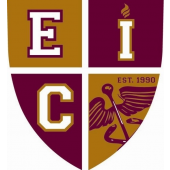
#63: Eastern International College
Eastern International College has campuses in Jersey City and Belleville. Prelicensure nursing students can pursue an ADN or BSN degree at either campus. The college also offers an online RN-to-BSN degree completion program for ADN-prepared nurses with an active, unencumbered license. The ADN program is a 70-credit-hour, two-year course of study, while the prelicensure BSN program is a 120-credit-hour, four-year course of study. Graduates of either program are prepared to sit for the NCLEX-RN licensure examination. Eastern International College students hold a solid 82% first-time NCLEX pass rate since the launch of the school’s nursing programs.
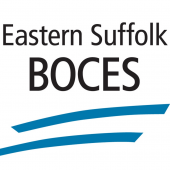
#64: Eastern Suffolk BOCES
Eastern Suffolk BOCES comprises 51 Long Island school districts that serve more than 8,600 adult and high school students. The cooperative is home to the Health Sciences Department, which offers a CNA pathway, and the Eastern Suffolk School of Practical Nursing, which has separate LPN pathways for adults and high school students. The CNA program features classroom learning along with clinical experiences at local nursing homes. Graduates are prepared to take the New York State nurse assistant certification exam. The LPN diploma program offers adults an 11-month fulltime day option and a 17-month parttime evening track, while high school seniors can enroll in a parttime day program. More than 100 adult learners graduate from the LPN program each year, with a solid 84% first-time NCLEX pass rate over the past decade. The high school program graduates an additional two dozen students annually.
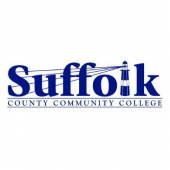
#65: Suffolk County Community College
Suffolk County Community College offers degrees and certificates in approximately 100 fields of study to a student body of 25,000 individuals. The School of Nursing conducts a licensed practical nursing (LPN) certificate program and an associate of science in nursing (ASN) degree program. Both programs are fully accredited by the Accreditation Commission for Education in Nursing. The LPN certificate is offered on the Eastern campus in Riverhead, while the ASN degree provides three program options (daytime, evening, LPN bridge) on both the Ammerman campus in Selden and the Michael J. Grant campus in Brentwood. Student outcomes are excellent in both programs. For example, the graduating class of 2020 scored a 92.3% first-time pass rate on the NCLEX-PN licensure examination and a 93.1% first-time pass rate on the NCLEX-RN licensure examination.
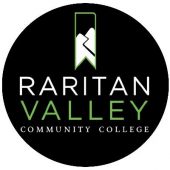
#66: Raritan Valley Community College
Raritan Valley Community College opened in 1968 as Somerset County College. When classes first began, the school had 229 students. Today, RVCC serves nearly 8,000 students enrolled in more than ninety associate degree and certificate programs. It was also New Jersey’s first community college to establish a selective Honors College. The college’s competitive nursing program boasts an 87% first-time NCLEX-RN pass rate over the past eight years. The rigorous ADN curriculum allows students to tailor their studies to a specific area such as cancer, elder care, emergency room triage, or pediatrics. Upon completion of the program, ADN graduates are prepared for immediate entry-level employment in the field or to seamlessly continue their education and earn a BSN degree at Kean University.
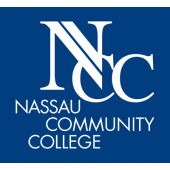
#67: Nassau Community College
Nassau Community College is the largest single-campus community college in New York, serving nearly 20,000 traditional students and 10,000 professional and continuing students. The Nursing Department offers a traditional ADN program as well as a multi-award, dual degree ADN/BSN pathway in partnership with SUNY Empire State College. The traditional ADN program is 84 credit hours in length, while the ADN/BSN option requires 124 credit hours to graduate. Both programs feature general education, nursing coursework, laboratory exercises, and clinical experiences. Nassau Community College graduates more than 100 nursing students each year. Over the past decade, they have averaged a strong 86% first-time pass rate on the NCLEX licensure examination.
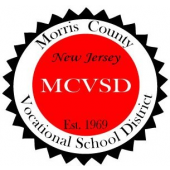
#68: Morris County School of Technology
Morris County School of Technology is part of the Morris County Vocational School District, which provides education and career training programs to high school students and adult learners. The school offers a range of program options for individuals seeking a career in the healthcare industry, including phlebotomy technician, patient care technician, physical therapy aide, and licensed practical nurse. The LPN program is designed for students with a high school diploma who are new to nursing. The curriculum integrates nursing theory with clinical practice to train nurses for positions in hospitals, home healthcare settings, clinics, nursing homes, and physician’s offices. Approximately 20-30 graduates annually are prepared to sit for the NCLEX-PN licensure examination. Students from Morris County School of Technology have averaged an 84% first-time NCLEX pass rate over the past eight years.
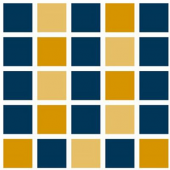
#69: Westchester Community College
Westchester Community College is the county’s largest educational institution with more than 24,000 students. The Nursing Department offers a four-semester, 64-credit associate of applied science (AAS) degree program. Coursework covers a range of critical nursing topics including dosage calculations, healthcare nutrition, and pharmacology. Laboratory exercises and clinical experiences provide exposure to general nursing, mental health nursing, and maternity nursing. Westchester Community College’s AAS program typically graduates 30-50 students annually. These candidates have averaged an impressive 94% pass rate on the NCLEX-RN licensure examination over the past decade. The classes of 2018 (32 out of 32) and 2020 (55 out of 55) enjoyed a perfect 100% pass rate.
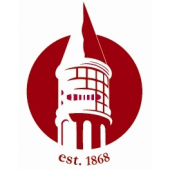
#70: Bloomfield College
Bloomfield College is a workforce-ready institution that provides more than fifty degree options across seven academic divisions. The Frances M. McLaughlin Division of Nursing offers both a traditional prelicensure BSN program and an RN-to-BSN degree completion pathway. Prelicensure students have enjoyed an impressive 93% first-time NCLEX pass rate over the past eight years. Nursing students engage in intensive coursework, simulation lab experiences, and clinical rotations at local hospitals and healthcare centers. The curriculum deeply explores the topics of nursing research, evidence-based practice, clinical judgment, nursing skills, therapeutic communication, teamwork, and collaboration. The traditional BSN is a four-year program, while the RN-to-BSN pathway is an accelerated program that requires just 15-18 months to complete. The Bloomfield College nursing program is accredited by the Commission on Collegiate Nursing Education.
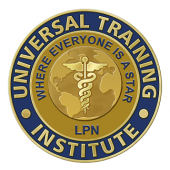
#71: Universal Training Institute
Universal Training Institute is accredited by the Accrediting Council for Continuing Education & Training. The school offers a practical nursing program that features small class sizes, day and evening schedules, state-of-the art simulation labs, and a job placement rate of approximately 80%. Students in the day program can expect to complete their studies in 12 months, while evening students can complete the program in 18 months. The curriculum’s major components include anatomy and physiology, pharmacology, medical-surgical nursing, and introduction to nursing. Clinicals take place at local healthcare facilities. Universal Training Institute’s practical nursing program graduates 50-60 students annually, with a solid 82% first-time NCLEX pass rate over the past eight years.
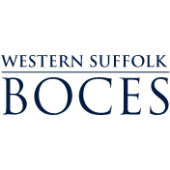
#72: Western Suffolk BOCES
Western Suffolk BOCES has provided career and technical education, special education, and instructional support services to the Long Island school districts for more than seventy years. The school’s practical nursing program began in 1963. Students may attend the program on either a fulltime or part-time basis as they progress through the three curricular levels. Level I covers baseline topics like nursing fundamentals and pharmacology. Level II teaches maternal-child health as well as care through the lifecycle. Level III deepens these topics and introduces community nursing. Throughout their coursework, students rotate through clinical experiences at a variety of local affiliates including Gurwin Jewish Nursing & Rehabilitation Center, Southside Hospital, and Veterans Administration Medical Center. The LPN program at Western Suffolk BOCES graduates approximately 30-40 students annually. Over the past decade, these graduates have averaged an 83% first-time pass rate on the NCLEX-PN licensure examination.

#73: Eastwick College
Eastwick College is the first nationally accredited school approved for prelicensure instruction by the New Jersey Board of Nursing. It is also the state’s first private college approved for candidacy by the National League for Nursing. Eastwick offers a traditional 18-month LPN diploma program at its Hackensack and Ramsey campuses, with an emphasis on vital skills like physical assessment, wound care, intravenous therapy, and medication administration. The Hackensack campus also features a bilingual LPN track with 600 hours of English as a second language (ESL) training, to ensure that students master the necessary medical terminology. In total, Eastwick College graduates approximately forty new LPNs annually. Over the past eight years, the school has maintained strong NCLEX pass rates across all campuses and programs, including Hackensack (88%), Ramsey (88%), and bilingual (89%).
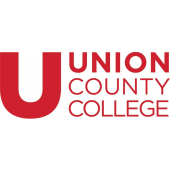
#74: Union County College
Union County College serves nearly 20,000 students across three campuses and two satellite locations. More than 60 programs leading to an associate degree or certificate are offered in areas such as business, STEM, and health. The UCC Division of Allied Sciences has a practical nursing program that requires 52-53 credit hours of coursework. The LPN curriculum takes four semesters to finish, and it awards a certificate upon completion. All courses take place during the day, while clinical rotations may be scheduled during the day, evening, or weekend to ensure that students engage in a variety of client care experiences. The LPN program typically graduates 40-60 students annually. These graduates have averaged an 88% first-time NCLEX pass rate over the past eight years.
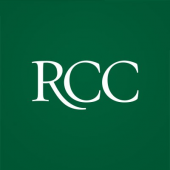
#75: Rockland Community College
Part of the State University of New York community college system, Rockland Community College is the only public college in all of Rockland County. The college offers fifty academic programs, including an associate degree in nursing conducted by the School of Nursing, Health and Wellness. The ADN program prepares students to provide high-quality care to patients in hospitals, nursing homes, and other healthcare settings. The curriculum combines classroom instruction, laboratory work, simulation practice, and clinical experiences across Rockland and its neighboring counties. Approximately 60-90 ADN graduates each year are eligible to sit for the NCLEX licensure examination. Over the past decade, these students have averaged an impressive 92% first-time NCLEX pass rate, including pass rates between 96% and 99% in each of the past four years. Rockland Community College’s ADN program is accredited by the Accreditation Commission for Education in Nursing.
